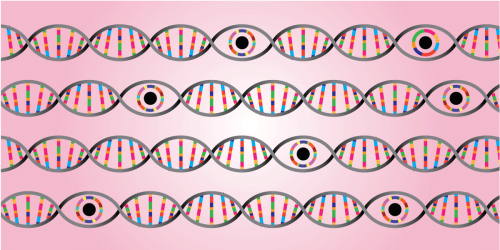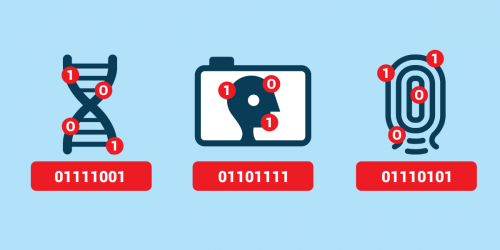The FBI plans to roll out the face recognition component of its massive Next Generation Identification (NGI) biometrics database this summer—but the Bureau has six years of catching up to do in explaining to Americans exactly how it plans to collect, use and protect this data. Today we called on Attorney General Eric Holder to do just that.
As we explained in the letter:
The capacity of the FBI to collect and retain information, even on innocent Americans, has grown exponentially. It is essential for the American public to have a complete picture of all the programs and authorities the FBI uses to track our daily lives and an understanding of how those programs affect our civil rights and civil liberties.
For this reason, it’s imperative that the FBI conduct and publish a current privacy impact assessment (PIA) for NGI.
The Privacy Act of 1974 requires all federal agencies that maintain records on Americans to explain how they collect, store, and use that information. As part of that process, agencies are required to perform a PIA and make that assessment available to the public. According to the DOJ’s own guidelines, this is not optional. Despite this, DOJ has not updated its PIA for the face recognition component of NGI since 2008.
As we said in the letter (and have said before):
The facial recognition component of NGI poses real threats to privacy for all Americans, and could, in the future, allow us to be monitored and tracked in unprecedented ways. NGI will include criminal and non-criminal photos, and the FBI projects that by 2015, the database could include as many as 52 million face images. 4.3 million of those would be taken for non-criminal purposes, such as employer background checks. It appears FBI plans to include these non-criminal images every time a law enforcement agency performs a criminal search of the database.
The extensive collection and sharing of biometric data at the local, national, and international level should raise significant concerns among Americans. Data accumulation and sharing may help solve crimes across jurisdictions or borders, but it can also perpetuate racial and ethnic profiling, social stigma, and inaccuracies throughout all systems and can allow for government tracking and surveillance on a level not before possible.
Given the threats NGI poses, the DOJ must conduct a robust assessment of the program to ensure it does not become a tool for the surveillance of innocent Americans—and DOJ must complete this process before NGI’s face recognition component becomes fully operational later this summer.
Letter to Attorney General Holder
Signatories:
American Civil Liberties Union
Bill of Rights Defense Committee (BORDC)
Brennan Center for Justice
Center for Digital Democracy
Center for Democracy & Technology
Center for Financial Privacy and Human Rights
Center for National Security Studies
The Constitution Project
Constitutional Alliance
Consumer Action
Consumer Federation of America
Consumer Watchdog
Council on American-Islamic Relations
Council for Responsible Genetics
Cyber Privacy Project
Defending Dissent Foundation
Demand Progress
DownsizeDC.org
Electronic Frontier Foundation
Electronic Privacy Information Center (EPIC)
Friends of Privacy USA
Government Accountability Project
Liberty Coalition
NAACP
National Association of Criminal Defense Lawyers
National Urban League
OpenTheGovernment.org
Patient Privacy Rights
Privacy Rights Clearinghouse
Privacy Times
R Street Institute
World Privacy Forum








